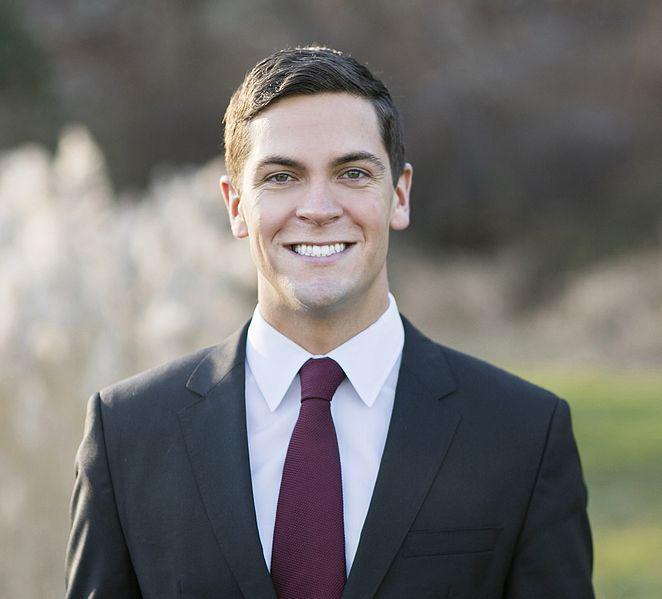On Sunday, Sean Eldridge announced that he’s running for Congress by tweeting out a video that explains why he wants to represent New York’s 19th district. Eldridge talks about his love of the area, his humble origins, and his commitments to Planned Parenthood, the environment, and campaign-finance reform. Conspicuously unmentioned are his work as political director of Freedom to Marry, a group that works for marriage equality, or his own marriage to Facebook co-founder and New Republic owner Chris Hughes. Buzzfeed made a federal case of this omission, but the truth is, Eldridge would be crazy to draw attention to his husband.
When mounting a congressional campaign, candidates are well-advised to emphasize the parts of their biography that potential constituents will relate to and to deflect attention from the things that might serve to alienate them. The New York Times described the 19th district as containing “vast stretches of rural, conservative communities” as well as “more Democratic-leaning places, like New Paltz and Monticello.” Given that some residents of those communities might have a visceral negative reaction to Eldridge’s homosexuality, there’s no incentive for him to mention it in the campaign kickoff. After all, it’s not like Eldridge is closeted—Google his name, and even without clicking through to any links, the name and gender of his spouse is visible multiple times.
It’s not even clear that Hughes’ gender is the reason for his absence from Eldridge’s video. More likely it’s that he’s a gazillionaire who made his fortune from an idea that originated in his Harvard suite. The knowledge economy is a wonderful thing, but hard-working farmers and small-business owners may not be the most receptive audience for the details of its ability to generate huge fortunes for callow twentysomethings.
What do people expect, that Eldridge will begin his speech by announcing that he married into money? The video also doesn’t mention that he’s 27, that he dropped out of law school, or that the couple bought a $2 million property in the district just eight months ago (or that they held onto their $5 million estate in nearby Garrison, N.Y., and their $5 million Soho loft). The same kind of message management explains why the announcement describes his dad as “the first in his family to graduate from high school” and his mom as having grown up “in a working-class family of immigrants” rather than saying that his parents are both physicians.
Given the Eldridge-Hughes’ familiarity with the wonders of technology—in addition to the Facebook connection, Hughes ran online organizing for Barack Obama’s 2008 campaign—it’s a safe bet that the video was tested to a fare-thee-well. And that’s no sin. Why would a candidate do anything other than maximize his chance of success?
To that end, Eldridge hired the media-consulting firm SKDKnickerbocker to work on his campaign—the same company that helped Sean Patrick Maloney to become New York’s first openly gay congressman in 2012. In that race, Maloney’s campaign ads didn’t show his partner of more than 20 years, or their three adopted children; instead they focused on his experience as a small-business owner and a senior White House aide to Bill Clinton. Maloney’s opponent, sitting Rep. Nan Hayworth, didn’t specifically mention his homosexuality in her ads; instead, she focused on her roots in the community (like Eldridge, Maloney took up a second residence in the district in order to run for the seat), but they did include some awkward group hugs with her husband and two sons.
Eldridge’s Republican adversary, military veteran Rep. Chris Gibson, has already run ads that attempt to paint the young Democrat as a carpetbagger—the first appeared back in July, two months before he announced his candidacy. Now that Eldridge is officially in the race, he isn’t obliged to make Gibson’s campaign easier by emphasizing his own vulnerabilities.
